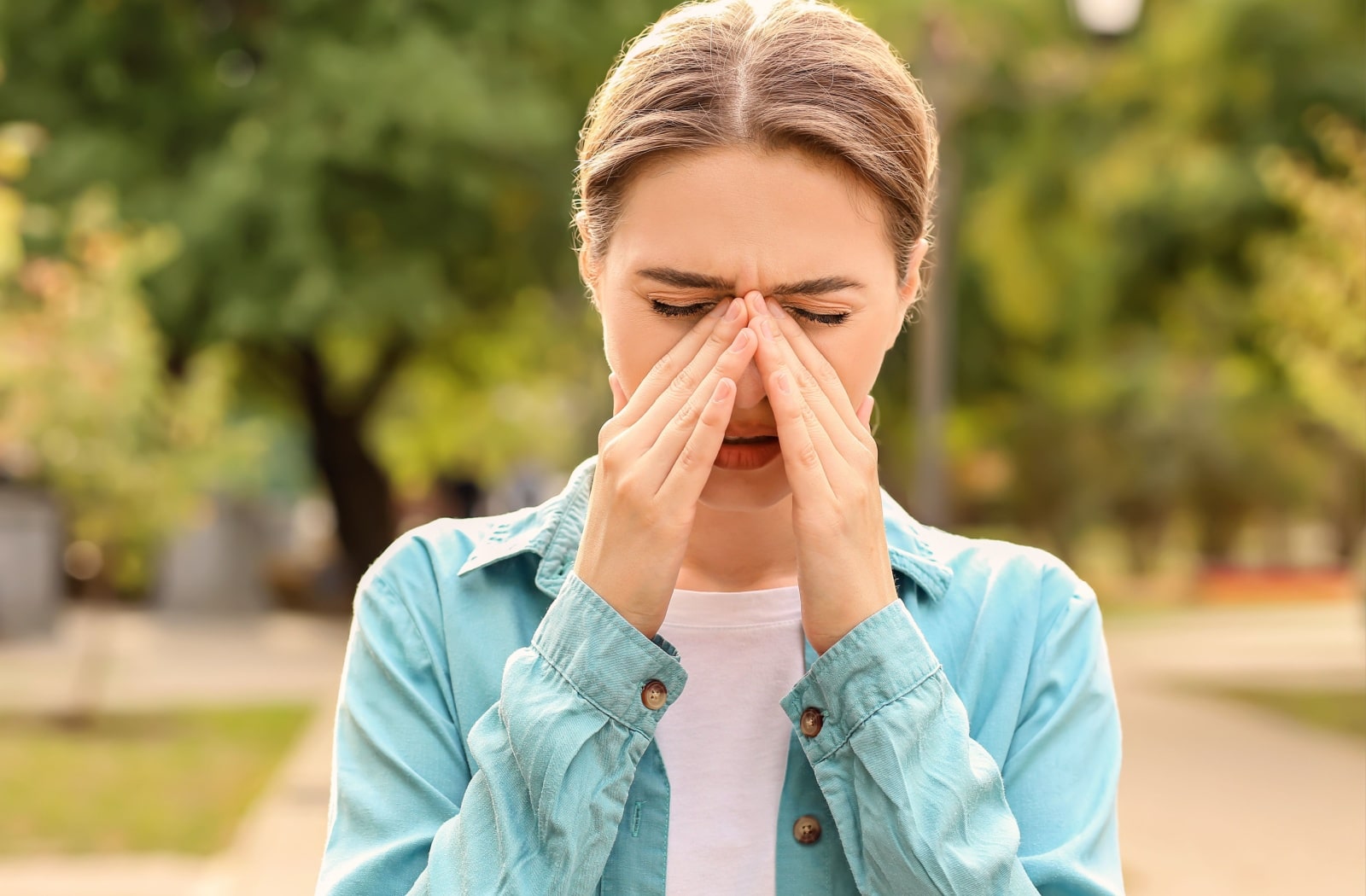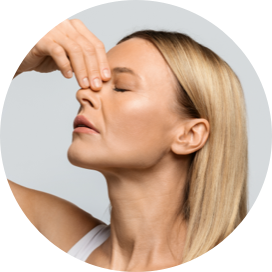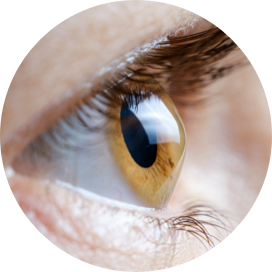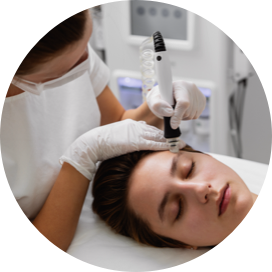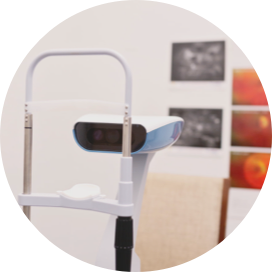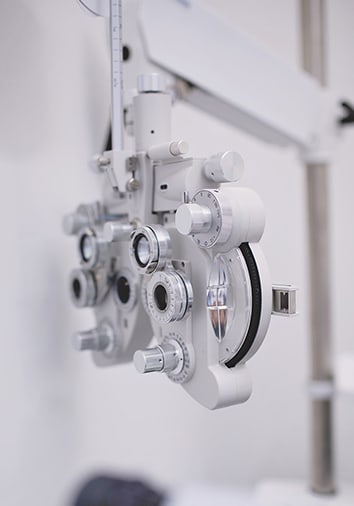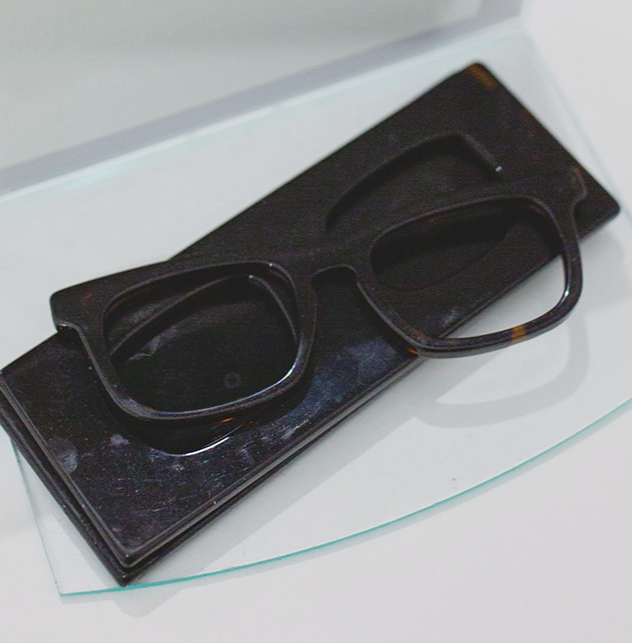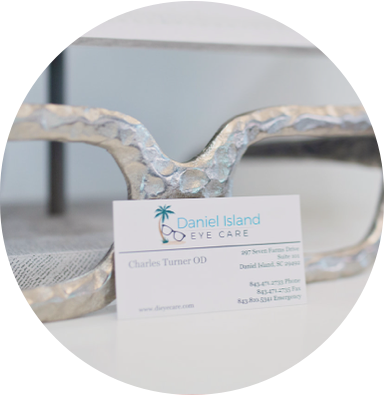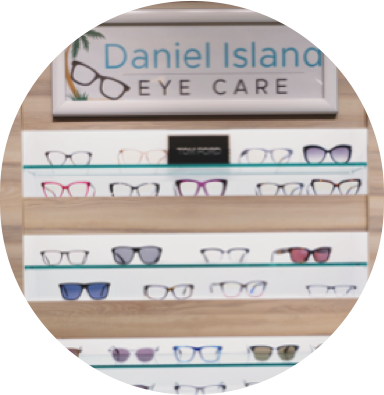Many of us are familiar with that itching, burning sensation in the eyes that often coincides with the arrival of spring. With the increase in pollen and other allergens, allergy season is a common nemesis for many. But beyond the sniffles and sneezes, allergies can provoke a lesser-known culprit—dry eyes.
Over-the-counter (OTC) eye allergy drops or lubricating eye drops are often enough to alleviate allergy symptoms like dry eyes. But there may be times when OTC remedies don’t cut it. In these situations, it’s a good idea to book an appointment with your eye doctor, who can offer tailored advice to relieve eye allergies and dry eye symptoms.
Allergies & Dry Eyes
Allergies are protective immune responses that sometimes go into overdrive against certain substances. They can lead to a wide array of symptoms, such as itching, sneezing, and watery eyes, but the severity of the reaction can vary widely.
Allergies Impacting Eye Health
The eyes are sensitive and complex organs, with systems designed to keep them clean and moist. When allergies hit, they prompt a release of histamine, a compound involved in immune responses that causes blood vessels to dilate and can trigger the eyes to produce more tears.
But this excessive tearing isn’t the same as the “good” kind of tears. The tears are not the lubricating type. Instead, your eye produces them as an attempt to flush out the irritant.
Dry Eyes in Allergic Individuals
With the constant battle to expel foreign substances, the eyes can respond counterintuitively by being watery and feeling dry. You may notice many similar symptoms that one would experience with dry eye syndrome, which is rooted in inadequate tear production or poor-quality tears.
It’s important to note that while allergies may cause dry eyes, they are not the same as dry eye syndrome and typically require different treatments. So, seeing your eye doctor if you have persistent dry eye symptoms, especially without other allergy symptoms, is crucial.
Symptoms of Allergy-Induced Dry Eyes
It can be perplexing to have watery and dry eyes, as these seem like opposing states. But this is a significant indicator of a disrupted tear film, often the autoimmune hustle against allergic triggers at play.
Symptoms of dry eyes from allergies include:
- Itchiness
- Redness
- Tearing (often clear tears, not necessarily indicative of weeping)
- Burning
- Light sensitivity
Treatment & Management Tactics
Relief is not a one-size-fits-all application for those combating dry eyes influenced by allergies. It often requires a multi-pronged strategy.
Medication Approaches
An eye doctor might recommend antihistamines to control allergic responses or even prescribe eye drops that function as artificial tears to maintain eye moisture in more severe cases. Nasal sprays can also alleviate eye symptoms by reducing the overall allergic response in cases of environmental allergies.
Lifestyle Changes & Home Remedies
Simple changes such as avoiding allergens, using air purifiers, and regular cleaning can significantly decrease the stimulus for allergic responses. Like warm compresses, eye hygiene can soothe the eyes, fostering a more stable tear film.
Prevention Strategies for the Upcoming Allergy Season
Prevention is often more manageable than active management. So, preparing for the next allergy season is paramount.
Proactive Allergy Management
Learning which allergens trigger your responses can help you plan ahead, whether it’s staying indoors during high pollen counts or making lifestyle adjustments like switching to hypoallergenic bedding. Of course, it isn’t always possible to avoid every allergen. But as you figure out which allergens trigger the worst response, you can start heading off those dry eyes before they happen.
Consistent Eye Care & Check-Ups
Regular visits to the optometrist can help detect potential issues early on, enabling swift intervention before symptoms escalate into dry eye territory. For example, if you’re dealing with dry eye syndrome, your eyes are already prone to being dry and irritated. Your eye doctor can offer specific dry eye therapies, such as intense pulsed light therapy. These therapies can help alleviate dry eyes and give them their best chance during allergy season.
Don’t Let Dry Eyes Keep You Inside This Spring
The correlation between allergies and dry eyes is a compelling example of the intricate symphony of our immune and sensory systems. You can proactively address these intertwined health concerns by recognizing the signs, seeking appropriate diagnosis, and implementing thorough management and prevention strategies.The next time you feel those pre-allergy-season vibes, remember to prepare not just for sniffles but for the potential for a dry-eye duel.
Contact our team at Daniel Island Eye Care today to book an appointment. One of our optometrists can discuss your symptoms with you and provide a treatment plan for prevention and relief this spring.

